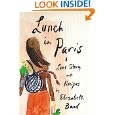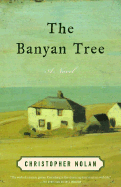Has anyone out there ever found the name of a stranger in a second-hand book and wondered about them?
I’ll confess to a flicker of thought about who may have read a book that somehow made its way into my hands, though never have I acted upon the impulse to communicate with them.
I’m simply not that brave; I had to work hard to visualize a reserved man from Guernsey writing a stranger in London because he’d read a book she had once owned and wanted further reading recommendations from her.
I wonder what went through his mind as he carefully composed his request. Sixty years ago, would such a request have been taken at face value or might it have been viewed as odd?
My guess is, since people communicated largely through letters and telegrams unless they could meet face-to-face such a request would have been answered eventually, as it was in The Guernsey Literary and Potato Peel Pie Society.
Penned by Mary Ann Schaffer and her niece, Annie Barrows, the book takes the reader back to post-war England and the Channel island of Guernsey. It is 1946 and both London and Guernsey share the grief and ravages of war. We meet a young writer, Juliet Ashton, and her friend and editor discussing via letter a book tour, her correspondence with friends and the receipt of a letter from an unknown man detailing his discovery of a book she once owned.
With time, the two develop an ongoing correspondence through which the reader learns of the Nazi occupation of Guernsey and the existence and membership of the island’s literary society. This presents Juliet with exciting possibilities for a new book and she soon finds herself engrossed in the lives of each society member and their families.
At the center of poignant anecdotes is a young woman, Elizabeth McKenna, whose whereabouts since her arrest by the Nazis is initially unknown. It is she who creates the society, first as a ruse, to hide the consumption of contraband pork by the group, which meets for dinner and then flouts the Nazi occupiers curfew. We learn too that Elizabeth becomes a central character in the lives of those she befriends and cares for on the island. She is presented as an unconventional woman who falls in love with a young German doctor, eventually having his daughter and raising her in tightknit Guernsey. When Elizabeth assists a young Nazi prisoner and arrested for her crime by the Nazis, all of Elizabeth’s friends care for four-year-old Kit, hoping for her mother’s return.
It is at this point that Juliet decides to meet the literary society members in person. She journeys to Guernsey and in Elizabeth’s cottage, falls in love with the place, its inhabitants, Kit and the gentleman she first met when he wrote her as a stranger.
For her part, Juliet sees beyond grief and loss in those around her. Having lost her own parents as a girl, she is no stranger to grief or anger, but it is the love for Kit that surprises her as well as her willingness to leave life in London behind for the sense of extended family she finds on the island.
Juliet learns of Elizabeth’s death at the hands of her captors and the horrors faced in her concentration camp through a French survivor, Elizabeth’s friend Remy. Like Juliet, Remy is invited to Guernsey to heal. Though she recuperates physically, Remy remains haunted by her experiences and eventually leaves for Paris to begin life anew.
The book ends with the promise of marriage for Juliet and her desire to adopt Kit. A novel rooted in contemporary history, The Guernsey Literary and Potato Peel Pie Society is also about transformation and the power of the human spirit to overcome oppressive forces.
The letter is used very cleverly in this book as a literary device. Much as I tried to picture the same information conveyed by e-mail, I could not. What would be lost? Warmth, the sense that the letter writer carefully selected his or her words and cared about the feelings communicated.
Additionally, the gift of detail or nuance, more easily explained in a letter, is often missing in today’s truncated electronic missives. The time taken to write a letter may also make a difference to its recipient. Finally, one does not keep e-mails as special tokens of attention, time or history. They cannot be bundled and put in a special place to preserve moments in time, as letters often were. There is a certain charm about this book that comes through in the letters between its characters. I would sum it up as an enjoyable read.
Subscribe to:
Post Comments (Atom)












Oh, letters. How I miss them. And yet...and yet...
ReplyDeleteI do enjoy epistolary (sp?) novels very much. I will check this one out. Hooray Liz for posting!
Sounds like a great book. I will have to check it out.
ReplyDeleteThanks...Not sure what or when we'll be reading next...
ReplyDeleteI adored this book - our book club read it. It is one that sticks in the memory, a classic.
ReplyDeleteI was sorry when this book ended, truth be told.Thanks for your comment.
ReplyDeleteHello e- at last I have finished the book! I cannot post on VBC so I will post my thoughts on my own blog.
ReplyDeleteYour opening remarks about the likelihood of Dawsey Adams writing to Juliet Ashton is a good point- is it too much of a contrivance? Actually I think that as the people on Guernsey were so starved of information and reading material, that their hunger for information would have prompted such a letter. In the absence of Google and email- writing a letter would have been natural. It is not a stretch of the imagination too far that they end up forming such a close friendship/bond which turns into love. (Many such bonds are formed across the miles these days with internet dating).
You write a very good synopsis.
The structure of the book, in the form of letters, has been done before and works well in this case. I had no idea that the islanders had it so hard under German occupation. I was filled with forboding when Elizabeth was sent to France. Juliet intends to make her the central figure in her book- as of course she is in Shaffer's book, alongside Juliet. I found particularly moving the account of Elizabeth trying to cheer up distressed children as they were waiting to be evacuated to mainland Britain.
I loved the concept of the literary society- and the fact that the members were not necessarily 'literary' people- but that they all still found something of worth and solace in the books they read. Their opinions of the books they read were sometimes quite frank and funny.
I would love to visit Guernsey after reading this book. I found the subject matter very interesting- bit I did wonder whether the very serious subject was treated a little too lightly? On the otherhand, the author does make the point somewhere that hunour is a way of dealing with trauma. I just felt that Juliet was a little too much in the centre of it all- but then we all live egocentric and largely uninformed lives.
I'll try and post soon !
What are we reading next???
Well done for reviving this book club xx
Thanks for posting, Cinnamon. The honour of resurrecting this book club should go to Tut tut tut as it was she who approached me about it. Speaking of same, I've not heard a peep...
ReplyDeleteWhat are we reading next? Whatever you choose!
Yes, keep it up! I love coming here, reading y'all's reviews and feeling like I read a book, even though I didn't. Although it does make me want to read them - like this one, in the form of letters exchanged(like Dracula, heh, heh), very intriguing. I'm putting it on my reading list. Yes, keep it up! Please.
ReplyDeleteHello e! and other readers! Well how about Amy Tan' the Bonesetter's daughter' ? Only because I happen to have a library copy out at the moment, so a selfish reason really!
ReplyDeleteOkay by me. I'll see if I can get that.
ReplyDeleteMy book group read this, it is one of my all time favourites.
ReplyDeleteThanks. It'll go on my ever-growing mile high list of books to read.
ReplyDeleteI recieved a copy of "A long days journey into night" with so many comments and hiliter that I had to read them all. Wish I knew who did this. I suspect female.
ReplyDelete